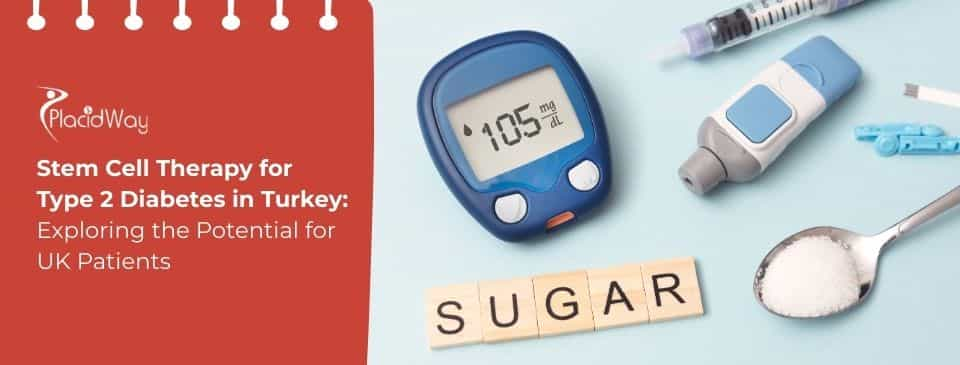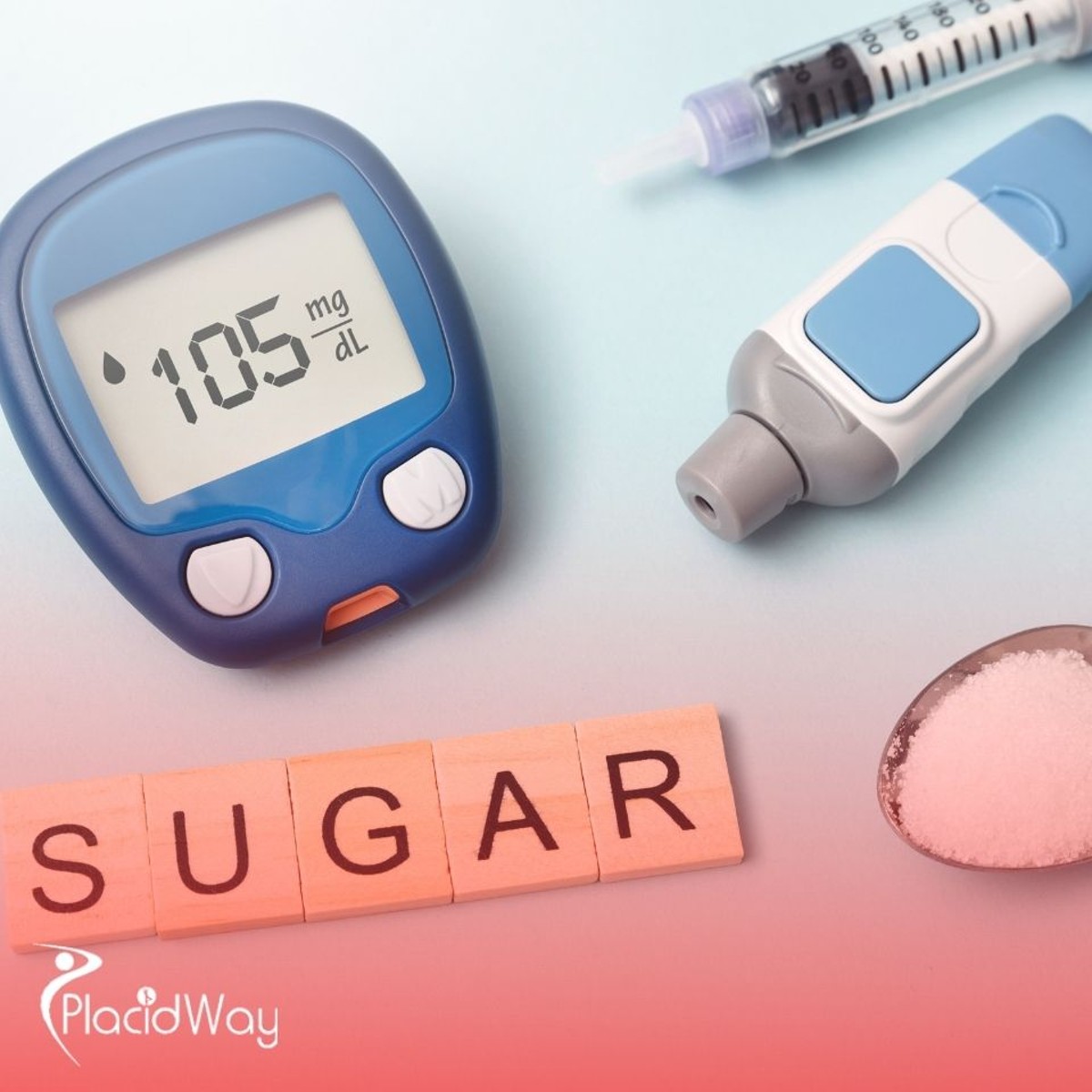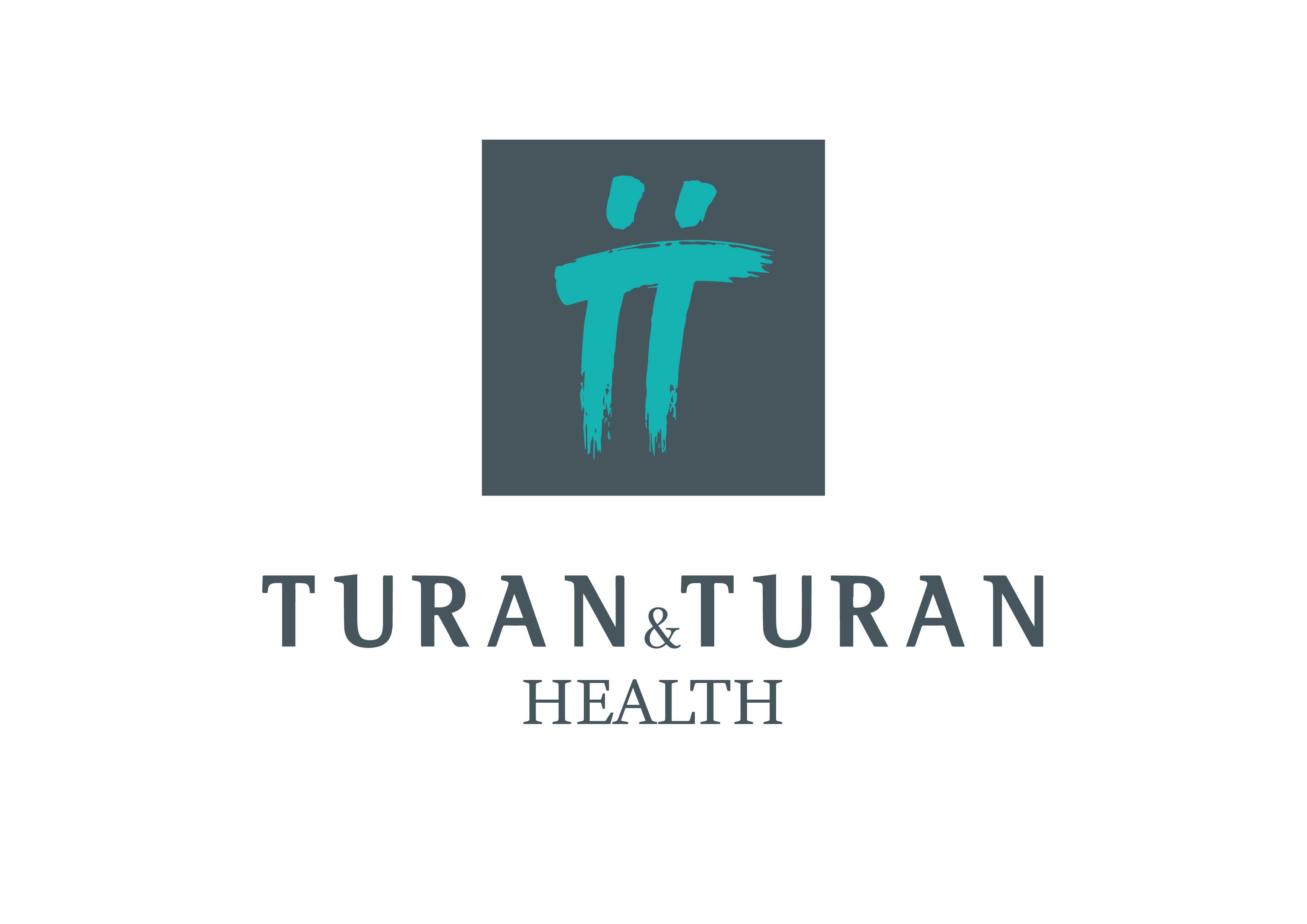
Managing type 2 diabetes can be challenging, especially when standard treatments don’t deliver the desired results. For many UK patients, stem cell therapy in Turkey is emerging as a promising approach to help regulate blood sugar levels and reduce long-term complications. With advanced medical facilities, experienced specialists, and more accessible costs, Turkey is becoming a popular destination for innovative diabetes care.
This guide explores how stem cell therapy works, its potential benefits, and what UK patients should consider before traveling for treatment.
Key Takeaways
-
Stem cell therapy for Type 2 Diabetes (T2D) in Turkey is an emerging regenerative medicine approach, offering UK patients a potential pathway to improved glycemic control and reduced insulin dependence.
-
Turkey provides state-of-the-art medical facilities, experienced specialists, and competitive pricing for stem cell treatments, making it a popular choice for medical tourism.
-
Mesenchymal Stem Cells (MSCs), derived from various sources like bone marrow or umbilical cord tissue, are primarily used for their immunomodulatory and tissue-repairing properties.
-
Patients can expect significant cost savings for stem cell therapy in Turkey, often 50% less than in the UK.
-
The typical cost for Stem Cell Therapy for Type 2 Diabetes in Turkey ranges from $5,000 to $15,000 (£4,000 to £12,000) per treatment cycle.
-
Comparable treatments in the UK or other Western European countries could cost upwards of £10,000 to £30,000+ per cycle, highlighting substantial financial benefits.
Understanding Type 2 Diabetes (T2D)
Type 2 Diabetes (T2D) is a chronic metabolic disorder characterized by insulin resistance and insufficient insulin production by the pancreas, leading to high blood glucose levels and potential long-term complications affecting various organ systems.
Type 2 Diabetes (T2D) affects millions worldwide and is primarily defined by two intertwined problems: insulin resistance, where the body's cells don't respond effectively to insulin, and the pancreas's inability to produce enough insulin to compensate. Insulin, a hormone produced by beta cells in the pancreas, is vital for regulating blood sugar by allowing glucose to enter cells for energy.
When this system fails, blood glucose levels rise, which can damage nerves, kidneys, eyes, and the cardiovascular system over time. T2D often develops gradually, influenced by genetics, lifestyle factors like obesity, and lack of physical activity. Symptoms can include increased thirst, frequent urination, fatigue, blurred vision, and slow-healing sores.
Traditional Treatments for Type 2 Diabetes
Conventional treatments for T2D focus on managing blood sugar levels through lifestyle modifications, oral medications, and sometimes insulin therapy, aiming to prevent complications and improve quality of life.
For decades, the management of Type 2 Diabetes has revolved around a structured approach to keep blood glucose levels within a healthy range. These traditional treatments include:
-
Lifestyle Modifications: This is the foundational treatment. It includes:
-
Healthy Eating: A balanced diet low in refined sugars and saturated fats, emphasizing whole grains, fruits, vegetables, and lean proteins.
-
Regular Exercise: At least 150 minutes of moderate aerobic activity per week, coupled with strength training.
-
Weight Loss: Losing even a modest amount of weight can significantly improve insulin sensitivity.
-
-
Oral Medications: Various classes of drugs help lower blood glucose by different mechanisms:
-
Metformin: Reduces glucose production by the liver and improves insulin sensitivity.
-
Sulfonylureas: Stimulate the pancreas to produce more insulin.
-
DPP-4 Inhibitors, SGLT2 Inhibitors, GLP-1 Receptor Agonists: Newer medications that help lower blood sugar, often with additional cardiovascular or renal benefits.
-
-
Insulin Therapy: When oral medications and lifestyle changes aren't enough to achieve glycemic control, or as the disease progresses and the pancreas produces less insulin, external insulin injections become necessary.
While these treatments are effective for many, some patients may still struggle with optimal blood sugar control, experience medication side effects, or seek more innovative approaches to potentially reduce their reliance on daily medication or insulin.
.jpg)
What is Stem Cell Therapy for Type 2 Diabetes?
Stem cell therapy for Type 2 Diabetes is an experimental regenerative medicine approach that uses stem cells, primarily Mesenchymal Stem Cells (MSCs), to modulate the immune system, reduce inflammation, and potentially improve pancreatic beta cell function and insulin sensitivity.
Stem cell therapy for Type 2 Diabetes is at the forefront of medical innovation, offering a different paradigm from conventional treatments that merely manage symptoms. Instead, it aims to address the root causes and underlying pathologies of the disease. For T2D, the focus is largely on Mesenchymal Stem Cells (MSCs). These adult stem cells are known for their ability to:
-
Immunomodulation: MSCs can suppress the chronic low-grade inflammation often seen in T2D, which contributes to insulin resistance and beta cell dysfunction. They interact with immune cells to rebalance the immune response.
-
Tissue Repair and Regeneration: While not directly replacing beta cells in most current protocols, MSCs can secrete growth factors and cytokines that promote the repair of damaged pancreatic tissue and improve the microenvironment.
-
Improved Insulin Sensitivity: By reducing inflammation and oxidative stress, MSCs can potentially enhance the body's sensitivity to insulin, making existing insulin more effective.
-
Vascular Regeneration: Some studies suggest MSCs may help improve blood supply to the pancreas, supporting its function and potentially mitigating microvascular complications of diabetes.
Did You Know? The pancreas, an organ crucial for T2D, is not only responsible for insulin production but also for producing digestive enzymes that aid in breaking down food. Stem cell research for diabetes often focuses on supporting or regenerating its endocrine function.
Types of Stem Cells Used for T2D
For Type 2 Diabetes, the most commonly utilized stem cells are Mesenchymal Stem Cells (MSCs), typically derived from adipose (fat) tissue or bone marrow, and sometimes umbilical cord tissue, due to their potent immunomodulatory and reparative capabilities.
The specific type of stem cells used for Type 2 Diabetes therapy is crucial for efficacy and safety. The majority of clinical research and applications for T2D utilize Mesenchymal Stem Cells (MSCs), which are multipotent stromal cells. They are favored for their ability to modulate immune responses, reduce inflammation, and release trophic factors that support tissue healing.
Primary sources of MSCs include:
-
Autologous Adipose-Derived Stem Cells (ADSCs): Harvested from a patient's own fat tissue through a mini-liposuction procedure. This source is abundant, relatively easy to obtain, and carries minimal risk of immune rejection since the cells are from the patient's own body.
-
Autologous Bone Marrow-Derived Stem Cells (BMSCs): Extracted from the patient's bone marrow, usually from the hip bone (iliac crest). BMSCs have a long history of clinical use and are known for their regenerative properties.
-
Allogeneic Umbilical Cord-Derived Mesenchymal Stem Cells (UC-MSCs): These are sourced from donated umbilical cord tissue after healthy births. UC-MSCs are "off-the-shelf" and can be used for multiple patients. They exhibit low immunogenicity, meaning they are less likely to provoke an immune response in recipients.
The choice of stem cell source is a decision made in consultation with the medical team, considering the patient's health, disease severity, and the clinic's specific protocols.
The Stem Cell Therapy Procedure for T2D
The stem cell therapy procedure for Type 2 Diabetes involves a multi-step process: initial assessment, harvesting (for autologous cells), laboratory processing and expansion, and finally, administration of the stem cells, often via intravenous infusion.
Undergoing stem cell therapy in Turkey for Type 2 Diabetes involves a carefully orchestrated process designed to ensure safety and maximize therapeutic potential:
-
Initial Consultation and Evaluation: Your journey begins with a thorough medical assessment. This includes a review of your detailed medical history, current Type 2 Diabetes status, laboratory tests (e.g., HbA1c, C-peptide levels, fasting glucose), and potentially imaging studies. The medical team will determine if you are a suitable candidate and design a personalized treatment plan.
-
Stem Cell Harvesting (for Autologous Therapy):
-
If using Adipose-Derived Stem Cells, a minor liposuction procedure is performed, typically under local anesthesia, to collect a small amount of fat tissue.
-
If using Bone Marrow-Derived Stem Cells, a bone marrow aspiration is conducted, usually from the hip bone, under local anesthesia or sedation.
-
For Allogeneic Umbilical Cord-Derived MSCs, no harvesting procedure is needed as the cells are sourced from a donor bank.
-
-
Cell Processing and Expansion: The collected tissue or bone marrow is then transferred to a specialized, GMP-certified laboratory. Here, the MSCs are isolated, purified, and often expanded (cultivated to increase their number) to achieve the optimal therapeutic dose. This laboratory phase can take several days to a few weeks.
-
Stem Cell Administration: Once prepared, the stem cells are administered to the patient. The most common methods for T2D include:
-
Intravenous (IV) Infusion: The stem cells are infused directly into the bloodstream, allowing them to circulate throughout the body and potentially target areas of inflammation and pancreatic dysfunction.
-
Localized Injections: In some experimental protocols, stem cells may be injected directly into or near the pancreas, but IV infusion is more common for systemic effects.
-
-
Post-Administration Monitoring: Patients are typically monitored for a short period after the infusion to ensure there are no immediate adverse reactions.
The entire treatment process, from initial evaluation to cell administration, is often completed within a few days to a week, though preparation for autologous cells may extend the total timeline.
Benefits of Stem Cell Therapy for T2D
Stem cell therapy for Type 2 Diabetes offers potential benefits such as improved glycemic control, reduced insulin resistance, enhanced beta cell function, and a decreased risk of diabetes-related complications, potentially leading to a reduction in medication dependence.
The promise of stem cell therapy for Type 2 Diabetes lies in its potential to offer more than just symptomatic management. The observed benefits include:
-
Improved Glycemic Control: Many patients experience a reduction in fasting blood glucose levels and HbA1c (a marker of long-term blood sugar control), indicating better overall management of their diabetes.
-
Reduced Insulin Resistance: By modulating inflammation and improving cellular function, stem cells can help the body's cells become more responsive to insulin.
-
Enhanced Beta Cell Function: While not typically replacing beta cells entirely, MSCs can create a more favorable microenvironment for existing beta cells, potentially improving their function and reducing their stress.
-
Decreased Insulin Dependence: A significant benefit for many patients is the potential to reduce their daily insulin dosage or, in some cases, even achieve temporary insulin independence.
-
Reduction in Diabetes Complications: By improving blood sugar control and promoting tissue repair, stem cell therapy may help mitigate or slow the progression of microvascular complications such as neuropathy (nerve damage), nephropathy (kidney disease), and retinopathy (eye damage).
-
Anti-inflammatory Effects: The powerful anti-inflammatory properties of MSCs can help combat the systemic inflammation that characterizes T2D, benefiting overall health.
-
Enhanced Quality of Life: With better blood sugar control and fewer complications, patients often report a significant improvement in their overall well-being and quality of life.
Expert Insight: "Stem cell therapy for Type 2 Diabetes is a fascinating area. While it's not a 'cure-all,' it holds the potential to significantly alter the disease trajectory by addressing core pathophysiological aspects like inflammation and insulin resistance, offering new hope for better glycemic control and potentially less medication,"
Risks and Side Effects
While generally considered safe, stem cell therapy for Type 2 Diabetes carries potential risks, including transient fever, pain at the injection/harvest site, and, rarely, infection or immune reaction, making careful patient selection and choice of an accredited clinic paramount.
Like any medical intervention, stem cell therapy for Type 2 Diabetes is not without potential risks and side effects, though generally, these are mild and transient. It's crucial for patients to be fully informed:
-
Mild and Transient Side Effects: The most common reactions are usually short-lived and resolve within a few days:
-
Fever: A low-grade fever is often reported after IV infusion.
-
Pain/Swelling: Localized discomfort, bruising, or swelling at the site of stem cell harvest (for autologous therapy) or injection.
-
Headache/Fatigue: Some patients might experience temporary headaches or fatigue.
-
-
Infection: As with any procedure involving skin penetration or cell manipulation, there is a small risk of infection. Reputable Turkish clinics adhere to stringent sterilization protocols in GMP-certified laboratories to minimize this.
-
Immune Reaction (Allogeneic Therapy): While allogeneic MSCs from umbilical cord tissue have low immunogenicity, a very rare theoretical risk of immune reaction or rejection exists.
-
Contamination: If cell processing occurs in non-sterile conditions, there's a risk of bacterial or viral contamination of the cells. Choosing an accredited clinic with a GMP-certified lab is critical.
-
Inefficacy: The therapy may not be effective for all patients, and individual responses can vary significantly.
-
Tumor Formation: For adult MSCs, the risk of tumor formation is considered extremely low, with no conclusive evidence of this complication in clinical studies for T2D. This concern is more associated with embryonic stem cells.
Clinics in Turkey prioritize patient safety and will conduct a thorough pre-treatment evaluation to assess and mitigate potential risks.
Recovery and Aftercare
Recovery after stem cell therapy for Type 2 Diabetes is typically minimal, often allowing patients to resume most normal activities quickly, but continued medical monitoring, adherence to lifestyle recommendations, and gradual adjustments to diabetes medications are crucial for optimal long-term outcomes.
The recovery process following stem cell therapy for Type 2 Diabetes is generally less intensive than many other surgical procedures, focusing on gradual integration and ongoing management.
-
Immediate Post-Treatment:
-
You might experience mild fatigue, a low-grade fever, or localized discomfort at the harvest or injection site for 1-3 days.
-
Your doctor will provide specific instructions on wound care (if any) and pain management.
-
-
Activity Restrictions: Strenuous physical activity might be limited for a few days to a week to allow the body to rest and the cells to integrate. Light activities are usually encouraged.
-
Medication Management: Crucially, you must NOT stop or alter your current diabetes medications (insulin, oral drugs) without explicit instruction from your Turkish medical team. Your doctors will closely monitor your blood glucose and HbA1c levels, and any adjustments to your medication regimen will be made gradually based on your response to the stem cell therapy. Coordination with your UK GP/endocrinologist is important.
-
Follow-up and Monitoring: Regular follow-up appointments, including blood tests and clinical assessments, are vital to track your progress and assess the therapy's efficacy. Many Turkish clinics offer remote follow-up options for international patients.
-
Lifestyle Adherence: Maintaining a healthy lifestyle, including a balanced diet, regular exercise, and stress management, is essential to support the ongoing benefits of the stem cell therapy and overall diabetes management.
Did You Know? Some research suggests that the benefits of MSCs in T2D stem more from their paracrine effects (secreting bioactive molecules that influence surrounding cells) rather than directly differentiating into new insulin-producing cells.
Cost of Stem Cell Therapy for Type 2 Diabetes in Turkey
The cost of stem cell therapy for Type 2 Diabetes in Turkey is significantly more affordable than in the UK or other Western countries, typically ranging from $5,000 to $15,000 (£4,000 to £12,000) per treatment cycle, making high-quality regenerative treatments accessible.
For UK patients, the financial advantage of seeking stem cell therapy in Turkey for Type 2 Diabetes is a significant factor. Turkey offers a compelling balance of advanced medical care and competitive pricing.
|
Component |
Estimated Cost in Turkey (USD) |
Estimated Cost in Turkey (GBP) |
Estimated Cost in UK Private (GBP) |
Notes |
|---|---|---|---|---|
|
Initial Consultation & Evaluation |
$100 - $500 |
£80 - £400 |
£300 - £800 |
Comprehensive medical review, eligibility, and personalized treatment plan. Often part of a package. |
|
Stem Cell Harvesting & Processing |
$2,000 - $6,000 |
£1,600 - £4,800 |
£5,000 - £12,000 |
For autologous cells (fat or bone marrow), includes collection procedure and laboratory processing (isolation, purification, expansion). Cost varies by source and cell quantity. |
|
Stem Cell Administration (per cycle) |
$3,000 - $9,000 |
£2,400 - £7,200 |
£8,000 - £20,000 |
Includes the cost of the processed cells, administration (IV infusion), and immediate post-treatment monitoring. Allogeneic cells may have different pricing structure. Multiple cycles might be recommended. |
|
Total per Treatment Cycle |
$5,000 - $15,000 |
£4,000 - £12,000 |
£10,000 - £30,000+ |
This is a general range; actual costs depend on the specific clinic, protocol, and patient's condition. Always obtain an all-inclusive quote. |
|
Flights (UK-Turkey return) |
$150 - $500 |
£120 - £400 |
N/A |
Varies by airline, booking time, and airport. |
|
Accommodation (1 week) |
$300 - $800 |
£240 - £640 |
N/A |
Depending on hotel class and location. Many medical tourism packages include accommodation. |
|
Translation Services |
$50 - $150 per day |
£40 - £120 per day |
N/A |
Often included in comprehensive packages for international patients. |
|
Post-treatment Medications |
$50 - $200 |
£40 - £160 |
£50 - £200 |
Any specific medications needed after the stem cell treatment. |
Note: The exchange rate used for conversion (GBP to USD) is approximate and subject to fluctuations.
Why Choose Turkey for Stem Cell Therapy for T2D?
Turkey has emerged as a leading destination for stem cell therapy for Type 2 Diabetes due to its advanced medical infrastructure, internationally accredited clinics, highly experienced specialists, significant cost advantages, and comprehensive patient support services, appealing to UK patients.
For UK patients exploring stem cell therapy for Type 2 Diabetes, Turkey offers a compelling proposition built on several key strengths:
-
Advanced Medical Infrastructure: Turkey boasts modern hospitals and specialized clinics equipped with cutting-edge technology for regenerative medicine, including state-of-the-art GMP-certified laboratories for sterile and efficient stem cell processing. Many facilities hold JCI (Joint Commission International) accreditation, assuring adherence to global standards of patient safety and care.
-
Experienced Specialists: Turkish medical professionals, particularly in endocrinology and regenerative medicine, are highly qualified, often with international training and extensive experience in administering stem cell treatments for complex conditions like diabetes.
-
Significant Cost Savings: As outlined in the cost section, treatment in Turkey can be substantially more affordable than in the UK or other Western European countries, making innovative therapies financially accessible without compromising quality. Patients can save up to 50% or more.
-
Comprehensive Patient Support: Turkish clinics catering to international patients excel in providing holistic support, including dedicated patient coordinators, language translation services, assistance with travel and accommodation, and personalized care plans.
-
High Standards of Care: The Turkish Ministry of Health strictly regulates medical facilities, ensuring high standards of care. Reviews from international patients often highlight the professionalism of staff and the quality of facilities.
-
Accessibility: Turkey is easily accessible from the UK with numerous direct flights to major cities like Istanbul and Ankara, which host many premier medical facilities.
-
Reduced Waiting Times: Unlike healthcare systems with long waiting lists, Turkey often offers expedited treatment schedules, allowing patients to receive care promptly.

Preparing for Your Medical Journey to Turkey
Thorough preparation for your stem cell therapy journey to Turkey involves gathering comprehensive medical documents, arranging seamless travel logistics, securing appropriate insurance, and establishing clear communication with your Turkish medical team and facilitators.
A well-organized approach to your medical tourism trip for Type 2 Diabetes treatment is crucial for a smooth and stress-free experience:
-
Initial Contact and Remote Consultation: Begin by contacting a reputable medical tourism facilitator like PlacidWay or directly reaching out to a Turkish clinic specializing in stem cell therapy for diabetes. Provide your complete medical history, including your Type 2 Diabetes diagnosis, current blood glucose levels, HbA1c readings, C-peptide levels, a list of all current medications, and any relevant diagnostic reports.
-
Medical Documentation: Compile all pertinent medical records from your UK doctor or endocrinologist. Ensure these documents are organized and translated into English (widely accepted in Turkish medical tourism) or Turkish if specifically requested. Key documents include diagnostic reports, blood test results, and your current treatment regimen.
-
Travel Arrangements:
-
Passport: Verify that your UK passport is valid for at least six months beyond your planned return date from Turkey.
-
Visa: UK citizens generally do not require a visa for short tourist or medical stays (up to 90 days within a 180-day period) in Turkey. Always confirm the latest entry requirements.
-
Flights and Accommodation: Book your flights and accommodation in advance. Your medical tourism facilitator or clinic can often assist with booking suitable hotels near the medical facility.
-
Travel Insurance: Purchase comprehensive travel and medical insurance that specifically covers overseas medical treatment, including potential complications or emergency evacuations. This is strongly advised by the UK's Foreign, Commonwealth & Development Office (FCDO).
-
-
Financial Planning: Obtain a detailed, all-inclusive quote from your chosen clinic or facilitator. Understand the payment schedule and accepted payment methods. Be mindful of currency exchange rates and any international transaction fees.
-
Communication: Confirm that dedicated translation services will be provided throughout your treatment, especially during medical consultations and for understanding complex aftercare instructions.
-
Pre-Treatment Instructions: Strictly adhere to any pre-treatment guidelines provided by your Turkish medical team, which may include dietary restrictions, temporary adjustments to certain medications, or specific preparations for cell harvesting (if applicable).
Life After Stem Cell Therapy for T2D
Life after stem cell therapy for Type 2 Diabetes can involve significantly improved blood sugar control, reduced reliance on diabetes medications, and an enhanced quality of life, requiring ongoing medical monitoring and commitment to a healthy lifestyle to sustain benefits.
The ultimate goal of stem cell therapy for Type 2 Diabetes is to empower patients with better health and a more manageable condition. Here's what you might experience in the months following treatment:
-
Gradual Improvement: The beneficial effects of stem cell therapy are often not instantaneous. Patients typically report a gradual improvement in blood glucose levels, HbA1c, and overall well-being over several weeks to months as the cells work to modulate inflammation and improve cellular function.
-
Reduced Medication Dependence: A primary aspiration for many patients is the potential to reduce their dosage of oral diabetes medications or insulin. Any such adjustments will be made incrementally and under the strict supervision of your medical team, based on your body's response and improving glycemic control.
-
Enhanced Quality of Life: With improved blood sugar regulation and potentially fewer diabetes-related symptoms or complications, patients often experience a significant boost in their energy levels, overall health, and ability to engage in daily activities.
-
Long-term Monitoring: Continuous communication with your Turkish specialists and your local UK healthcare providers is crucial for long-term success. Regular follow-up appointments, including blood tests, will track your progress and allow for any necessary adjustments to your long-term care plan.
-
Continued Healthy Lifestyle: To maximize and sustain the benefits of stem cell therapy, maintaining a disciplined approach to diet, regular exercise, weight management, and avoiding smoking remains paramount. Stem cell therapy is a powerful tool, but it works best in conjunction with a committed healthy lifestyle.
Frequently Asked Questions (FAQs)
Is stem cell therapy for Type 2 Diabetes a cure?
No, stem cell therapy for Type 2 Diabetes is not currently considered a definitive cure but rather an advanced regenerative medicine treatment that aims to improve glycemic control, reduce insulin resistance, and enhance beta cell function, potentially leading to long-term remission or significant disease management. It's important to have realistic expectations. Research is ongoing, and while promising results have been observed, it's considered a treatment, not a complete cure.
How long do the effects of stem cell therapy for T2D last?
The duration of benefits from stem cell therapy for Type 2 Diabetes varies individually. Many patients experience sustained improvements ranging from several months to a few years, with some opting for repeat treatments to maintain optimal results as advised by their medical team. Factors like disease severity, overall health, and adherence to lifestyle recommendations can influence the longevity of the effects.
What types of stem cells are primarily used for Type 2 Diabetes?
For Type 2 Diabetes, Mesenchymal Stem Cells (MSCs) are primarily used. These can be sourced from your own adipose (fat) tissue (autologous), bone marrow (autologous), or from donated umbilical cord tissue (allogeneic), chosen for their immunomodulatory and regenerative properties. The choice of cell source depends on the clinic's protocols and individual patient suitability.
How quickly can I expect to see results after stem cell therapy for T2D?
The effects of stem cell therapy for Type 2 Diabetes are typically gradual. Patients often begin to notice improvements in blood glucose control and overall well-being over several weeks to months after the treatment, rather than immediately. Consistent monitoring and patience are key as the cells work within your body.
Is stem cell therapy for Type 2 Diabetes approved in the UK?
Currently, stem cell therapy for Type 2 Diabetes is generally not a standard, approved treatment within the NHS in the UK outside of specific clinical trials. This is why many UK patients explore options in countries like Turkey, where it may be more widely available through private clinics. Patients should always consult with their UK doctors before considering treatment abroad.
Will I need to stop my current diabetes medications before or after the therapy?
You should never stop or alter your current diabetes medications without explicit guidance from your medical team. Your Turkish specialists will closely monitor your condition and, based on your response to stem cell therapy, will gradually advise on any necessary adjustments to your medication regimen. This ensures your blood sugar remains safely controlled throughout the process.
What are the key factors to consider when choosing a clinic in Turkey for T2D stem cell therapy?
When selecting a stem cell clinic in Turkey, prioritize internationally accredited facilities (e.g., JCI), highly experienced specialists in endocrinology and regenerative medicine, transparency in pricing and treatment protocols, and comprehensive patient support, including pre- and post-treatment care and language services. Ensure the clinic operates a GMP-certified laboratory for safe and high-quality cell processing.
Restore Your Health with PlacidWay
Are you a UK patient looking for advanced and affordable treatment options for Type 2 Diabetes? PlacidWay is your trusted guide to exploring stem cell therapy in Turkey.







.png)
.jpg)








Share this listing